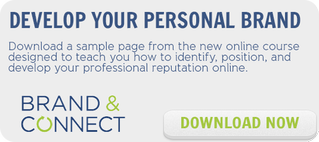 Building your personal brand often begins with describing yourself. Yet this is often the hardest part for people. To say “I am this” or “I am that” can be a struggle. We can describe most everyone else, but many of us fall mute when it comes time to talk about ourselves.
Building your personal brand often begins with describing yourself. Yet this is often the hardest part for people. To say “I am this” or “I am that” can be a struggle. We can describe most everyone else, but many of us fall mute when it comes time to talk about ourselves.
Maybe part of the problem is the “I am” proclamation. In English, we say, “I am John,” or “I am 32 years old,” or “I am right.” The French say it a bit differently. As I recently struggled with my own challenges studying French, it has occurred to me that the French approach can help with our personal branding.
“I call myself….”
Let’s look first at your name. The French would say “Je m’appelle John” which is literally translated I call myself John. Notice that they don’t say I am (name) like we do in English. Rather, they call themselves by their name. The French already know their name is a label that represents their “brand,” and they claim ownership for that label. So what do you call yourself?
“I have…”
Another important difference is how the French refer to their age and to situations. The French say “j’ai 32 ans” or they have 32 years. They don’t say they are their age, but they have their age. They possess age, or the wisdom of their age. It’s the same with the situation of being right and wrong. The French again use the verb have, and say they have right or have wrong. So why is any of this important?
Having something is better than simply being something.
If you want to build a business relationship with a prospect, what you have to offer is more important than who you are. Prospects are not concerned with your name or your job title, at least not until they know what you have to offer.
So start describing the benefits you have to offer your prospects, rather than simply who you are.
- You have a degree? Great, how does that knowledge help you offer better solutions for your clients?
- You have sales training? How does that help you solve clients’ problems?
- You have strategic thinking? How has that translated into client results?
- You have an aptitude for measurement? How has that helped you track client metrics and adjust for a better return on investment?
- You have a unique background? How does that translate into insights your competitors can’t offer?
Remember, when you think in terms of what you have, you can think in terms of what you have to offer. As you add these benefits you have to offer to your LinkedIn profile, be sure to include a few examples you have throughout your profile.


